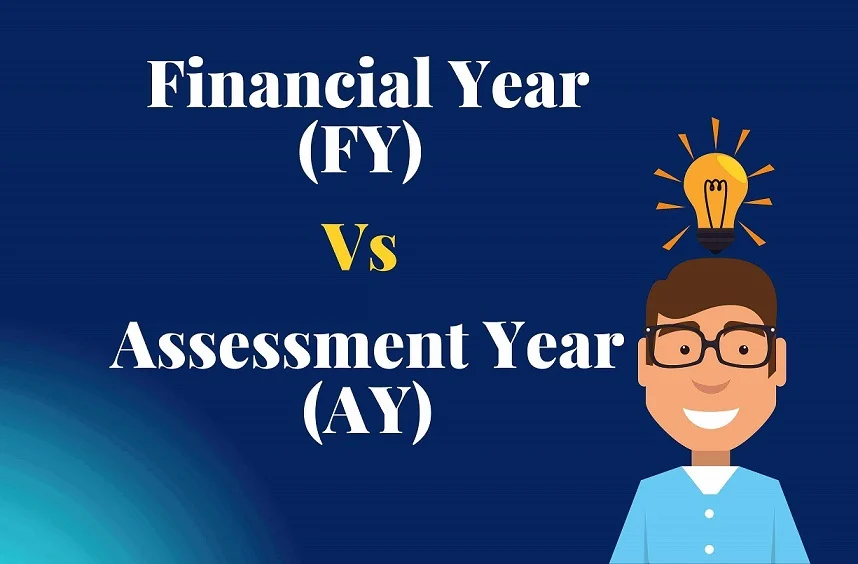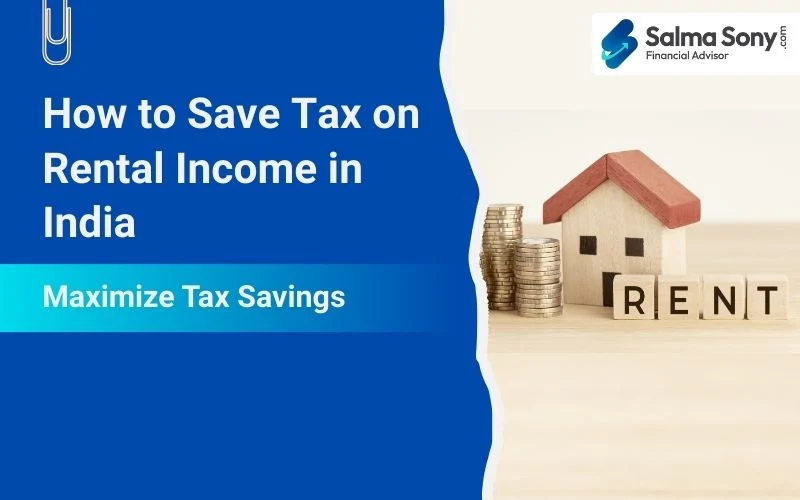Assessment year and financial year and is one of the most basic terms in taxation, still a lot more confusing.
Understanding the difference between the assessment year and financial year is essential for the correct tax declaration and filing to avoid additional TDS (Tax deducted at source).
Let’s understand the term called assessment year and financial year by understanding the logic behind why it is called assessment year and financial year.

What does Financial Year mean?
The financial year is also the calendar year that starts on 1st April and ends on 31st March. It is the year when you earn money, and money means finance hence known as the financial year. The abbreviation of Financial Year is F.Y. which is used very commonly.
What does Assessment year mean?
When you google the meaning of assessment, it says “the action of assessing someone or something.”
In our case, we are assessing money after completing the financial years (F.Y.), and that’s why the next F.Y. is known as assessment year because that’s when we assess the previous year’s income. The abbreviation of assessment year is A.Y.
For example,
At present, when I am writing this article, it is 25th March 2022, which means I am in the financial year 2021-22 (1st April 2021- 31st March 2022),
And, I can assess my income earned in F.Y. 2021-2022 only after completing the financial year (i.e., after 31st March 2022), i.e., in the Assessment year 1st April 2022- 31st March 2023).
Every year is a Financial year for that particular year and an assessment year for the previous financial year. It is crucial to understand the difference between the financial year and assessment year for your income tax planning.
What does the Previous year mean?
For tax filing purposes previous year and financial year are used in an inter-changed manner because when you are in the assessment year, you assess the previous financial year’s income. That’s why the financial year is also used as a previous year.
To make it crystals clear, let’s look at the example:
| Tax Period | Financial Year | Assessment Year | Previous Year |
|---|---|---|---|
| 1 April 2021 to 31st March 2022 | 2021-22 | 2022-23 | 2021-22 |
| 1 April 2020 to 31st March 2021 | 2020-21 | 2021-22 | 2020-21 |
| 1 April 2019 to 31st March 2020 | 2019-20 | 2020-21 | 2019-20 |

What is the difference between the assessment year and financial year?
| Financial Year | Assessment Year |
|---|---|
| Financial Year is a year in which assessee (individuals, companies, etc.) earn their income/money. | Assessment Year is when the assessee (individuals, company, etc.) assesses the previous year’s income earned to file their income tax return (ITR). |
| The financial year is when tax planning and tax savings investment are made. | The assessment year is when the income tax return filing is made. |
| The employer asks expected investment declaration at the beginning of the Financial year. | After analyzing all the proofs, the employer issued form-16 (usually between May- June). |
| The employer asks for income tax proof by the end of the Financial year (usually between Jan-Mar), and if not matched with the declaration, additional tax is deducted. | The taxpayer files the Income Tax return (Due day- 31st July). |
Why does the ITR form have an Assessment Year and not Financial Year?
The Income tax returns can be filed only after completing the financial year. Since income tax filing is done in the assessment year, the income tax form mentions the assessment year.
Conclusion
By understanding the two basic term financial year and assessment year, you can plan your tax saving investment efficiently, avoid mistakes while making the tax payment and feel empowered.
FAQ – Assessment Year And Financial Year
Q-1: When should taxpayer declare their tax-saving investment plan to their employer?
Usually, employer askes their employee to declare their investment plan at the beginning of the financial year —the best time to declare the right investment plan is in April.
Q-2: How do I save my taxes efficiently?
It is essential to understand the sections of the Income Tax Act, 1961, and Tax Planning Investment Strategies to save your taxes efficiently.
Q-3: When should taxpayers file ITR (Income Tax Return)?
Usually, the due date to file the ITR is 31st July. However, the filing due dates have been extended for several reasons over the last few years.
Q-4: How to pay my income tax as a resident individual?
Pay your Self Assessment tax online by opting for CHALLAN NO./ITNS 280 – 0021
Q-5: I get a rental income; do I need to pay advance tax?
Yes, you do. Pay your advance tax online by opting for CHALLAN NO./ITNS 280 – 0021
Note: If you make a mistake while paying the self-assessment and advance tax, you must pay the tax again for the correct AY to file your income tax return.





